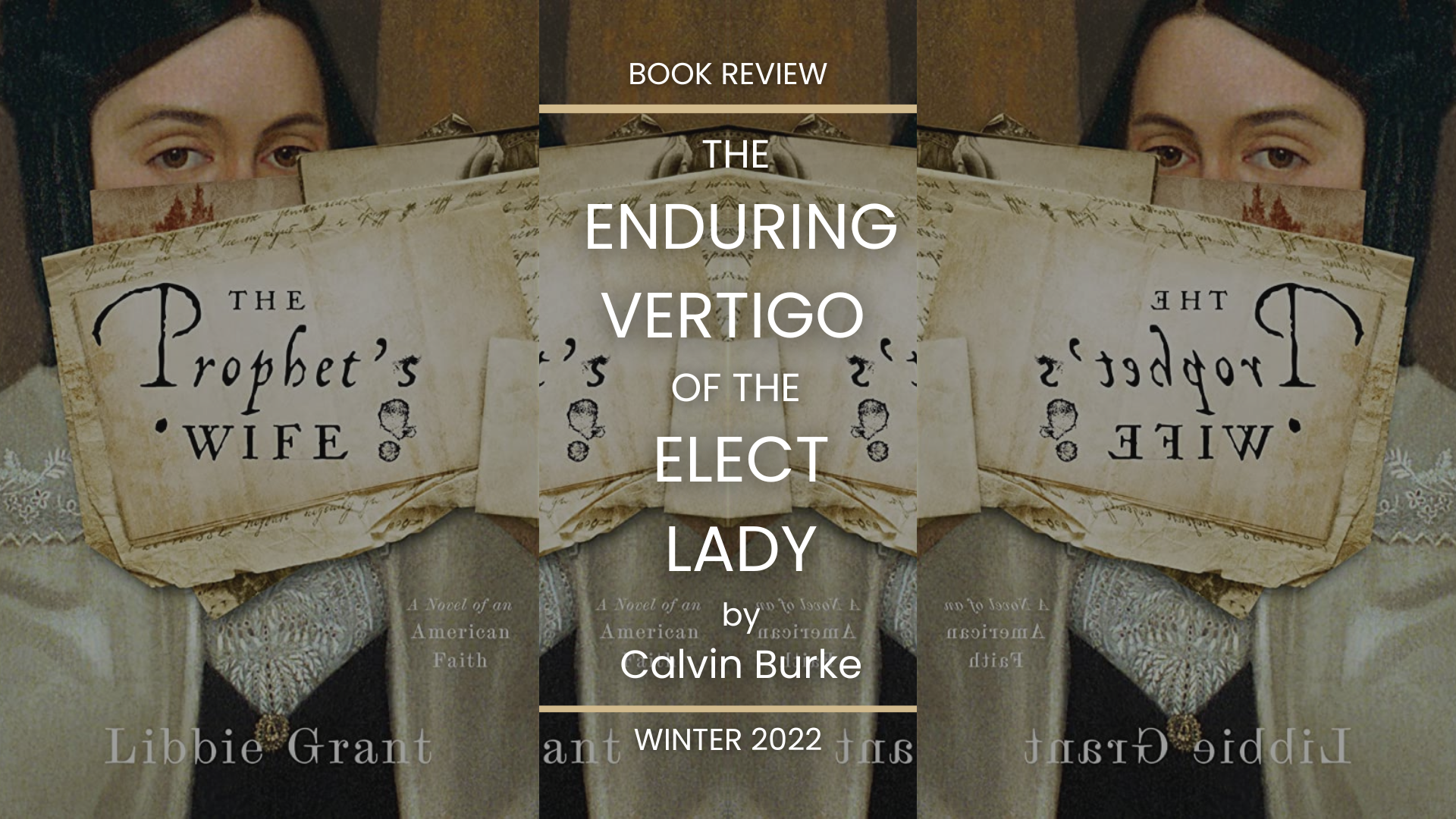Articles/Essays – Volume 55, No. 4
The Enduring Vertigo of the Elect Lady Libbie Grant, The Prophet’s Wife
Of the legacy of Joseph Smith, historian Bernard DeVoto wrote in 1936, “The vision perishes; it is the vertigo that endures.” Reading the novel The Prophet’s Wife by Libbie Grant is to feel that same perishing vision and enduring vertigo experienced by DeVoto and countless Latter-day Saints negotiating their relationship to the inherited past of their own faith today.
The grounds of the early Saints and polygamy are well-trod within Mormon literature. Where Grant—Washington Post bestselling author of One for the Blackbird, written under her pen name Olivia Hawker—breaks new ground is in the decision to foreground one of the most controversial figures in Mormon history: Emma Hale Smith.
Grant’s Emma is strong, disillusioned, and profoundly independent—not merely “a wife” but “the wife of Joseph Smith Junior” (2), as she declares to the governor of Illinois in the opening chapter. She watches, often powerlessly, as her young husband Joseph, equal terms charismatic and narcissistic, weaves a pious fraud that ultimately ensnares and destroys him.
Folk magic and polygamy figure prominently in the narrative. Inspired by scholarly work like D. Michael Quinn’s Early Mormonism and the Magic Worldview and John L. Brooke’s The Refiner’s Fire, Grant’s foregrounding of early Mormonism’s connections to western esotericism is a significant addition to her narrative. Revelatory, too, is Grant’s frank treatment of the sexual ramifications (and abuses) that some argue characterized early Latter-day Saint marriages. Grant is not as gentle or nuanced with this material as some past Mormon authors were. The quiet devastation of Virginia Sorensen’s A Little Lower than the Angels and the earnestly awkward kingdom building of Maurine Whipple’s The Giant Joshua are entirely absent from The Prophet’s Wife; what remains is a cutting critique of Mormon patriarchy. The Prophet’s Wife goes for the jugular in ways that are bound to be uncomfortable for practicing Latter-day Saints.
The narrative is punchy and pithy, and the voice is largely true to the time. It bogs down occasionally, however, in dialogue-heavy sections, where the dialogue doesn’t ring true and pulls readers out of the skin of the characters. Grant’s depiction of Emma herself is likely to be the most controversial—Emma doesn’t believe her husband is a real prophet and even has romantic dalliances with Joseph’s brother Don Carlos (which Grant, in an author’s note, acknowledges is not historical). While Grant’s depiction of Emma never feels entirely wrong, the book itself transcends historicity for a more important debate. Where The Prophet’s Wife succeeds most is in its demonstration that the life of Emma Smith has extraordinary relevance to the challenges roiling the Brighamites nearly two centuries later. Today’s Mormons find themselves just as haunted by the ghosts of their faith’s founding sins as they were in Emma’s time. If The Prophet’s Wife is characterized as anti-Mormon literature by practicing Saints, it will be because the novel demonstrates precisely how institutional Mormonism’s mythical self-regard furthers its contemporary oppression of women. Though Mormon readers may find themselves wishing for the more sympathetic treatments provided by Sorensen and Whipple, the reality remains that gentler treatments from our past have all but failed to yield institutional introspection, much less repentance. Perhaps nuance is not what we deserve?
The Prophet’s Wife is precisely the kind of narrative that unfurls in the maelstrom when “the vision perishes”—a critique of contemporary Mormonism’s failures told through historical fiction. A product of enduring vertigo though it is, Grant’s work proves a champion of women’s resiliency and autonomy in the face of oppression—and that, perhaps, is the only solid ground upon which we can safely build.
Libbie Grant. The Prophet’s Wife. New York: William Morrow, 2022. 480 pp. Paper: $16.99. ISBN: 9780063070622.


 Back to full Issue
Back to full Issue

